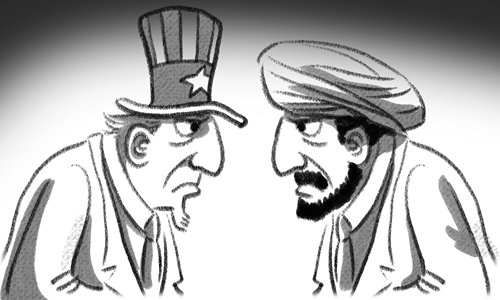
The purpose of the US move is to bring down Iran’s oil exports to zero. By sanctioning Iran’s economy, the US aims to bring the current Iranian government to its knees, thereby changing the regime. US hostile attitude toward Iran is largely to serve Israel’s geostrategy. Israel has always regarded Iran as a major threat to expand its influence in the Middle East. If the current Iranian government is weakened, the biggest beneficiary is not the US, but Israel.
Washington’s escalating pressure on Iran is a severe test of Tehran’s economy. The amount of crude oil reserves in Iran is the fourth largest, according to the US Energy Information Agency’s report in May 2018. Iran’s foreign exchange mainly comes from its oil export revenue. In recent years, Iran has developed a “resistance economy,” which involves measures to reduce the negative effects of sanctions, like making goods at home rather than importing from other countries and circumventing sanctions.
Therefore, Tehran’s dependence on oil exports has gradually declined. However, if the rest of the world stops importing Iranian oil, there will be a series of negative impacts on Iran’s economy, such as a drop in foreign exchange and further devaluation of the rial, Iran’s currency. Furthermore, Iran would feel isolated from the international economic system.
In spite of these serious economic ramifications, the Iranian regime would not be brought down. Iran’s oil exports cannot be drained to zero. Iran can take some measures, such as decreasing the price of oil, or delegating the right to export oil to small and medium-sized enterprises, to avoid US economic sanctions. In fact, Iran has been doing so for a while.
Tehran has 40 years’ experience in dealing with US sanctions and has been able to resist them. Therefore, increased US sanctions would impact Iran but would not make its regime unviable.
In political terms, the sanctions will reinforce anti-US sentiment in Iran, triggering hardliners to further dominate the regime. Iran is a country that will not give in easily. The more pressure, the bigger rebound.
US sanctions on Iran have proved Iranian President Hassan Rouhani administration’s policy on detente with the West is not working. In the next Iranian election, moderates may find it harder to survive and hardliners would be stronger.
As a response, Tehran will certainly condemn Washington. When it comes to military, Iran used to conduct exercises in the Persian Gulf and threatened to close the Strait of Hormuz. In future, Iran is likely to make similar threats.
In the meantime, Iran will increase its exchanges and communication with other economies, such as the European Union (EU), China and Russia, to circumvent US sanctions. For example, in January 2019, Germany, the UK and France created the Instrument in Support of Trade Exchanges, a new mechanism for EU companies to do business with Iran by bypassing US sanctions.
Despite enormous pressures, Tehran will not negotiate with Washington. It is certain that Iran will not yield to the US. On the contrary, as a response to the US sanctions, Tehran may restart some of its nuclear activities to reveal its strength and determination.
In the future, at least in US President Donald Trump’s tenure, there is little prospect of a thaw in Washington-Tehran relations. The Trump administration’s pro-Israel, anti-Iran stance is clear. Its approach to deter Iran is mainly through economic measures, together with diplomatic intimidation and isolation.
By these means, the US can contain Iran’s regional expansion and weaken the Middle Eastern country to a considerable extent. But Trump Administration may not launch military strike as it doesn’t fit Trump’s way of behaving.
The author is a research fellow at China Institutes of Contemporary International Relations. opinion@globaltimes.com.cn

